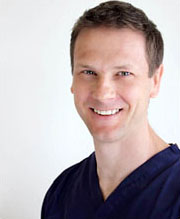
Where dental treatment is concerned, children require special care and attention. Young children especially can be difficult to handle whereas older children also need specialized treatment as their teeth, gums and jaw continue to develop.
Treating toddlers, young children and adolescents is different to catering for adults and falls under the mantle of what is termed pediatric dentistry.
A pediatric dentist must undergo a very specific course of instruction and training before becoming qualified and this is an intensive and focused training regime. But not everyone is aware of what a pediatric dentist is or what he or she actually does.
Pediatric Dentistry
Pediatrics, by definition, is a branch of the medical profession that deals with the care of children, from babies up to young adults. Pediatric dentistry focuses specifically on dental problems as they relate to the very young and covers all dental issues relating to the teeth, gums, jawbone and treating these issues in a professional but caring manner.
Children’s teeth first appear in the first six months and this primary set is usually replaced by a second, permanent set at around the age of six or seven.
Parents often make the mistake of ignoring their children’s dental care in the first years of life as the primary set will invariably fall out in any case.
This is a mistake that can lead to serious dental problems developing later on as oral development should be closely monitored by a dentist and possible issues corrected before the situation can deteriorate. Experts estimate that over half of the children in America suffer with cavities, a chronic condition that is largely preventable when treated early.
Focused Training Program
Achieving qualification in pediatric dentistry is an arduous and intensive process. It requires years of study as well as actual clinical experience. A candidate must have acquired a bachelor’s degree, completed dental school and passed a number of dental certification examinations.
After all this, the newly-licensed Doctor of Dental Medicine (DMD) or Doctor of Dental Surgery (DDS) must enroll in an approved residency program where he or she can elect to specialize in one or more specific areas.
The specialties available include:
- Periodontics (treatment of gum disease)
- Endodontics (treatment of issues with dental pulp, the tooth’s inner core)
- Orthodontics (correction of crooked and misaligned teeth)
- Oral surgery
- Restorative dentistry
- Prosthetics (fitting of bridges, implants, veneers, dentures and crowns)
- Preventative care
During the residency the candidate receives hands-on experience in real life situations while also studying for upcoming examinations by CODA, the Commission on Dental Accreditation. It is only on the satisfactory conclusion of the residency and exam success that the candidate is fully accredited and permitted to practice as a licensed pediatric dentist.
Main Functions
Pediatric dentistry encompasses all aspects of children’s dental health and care. This can be as basic as teaching a child how to brush and floss properly or as complex as performing oral surgery. Among some of the pediatric dentist’s main functions are:
- Conducting regular checks on children’s oral health
- Cleaning of teeth and scheduling fluoride treatment when required
- Early diagnosis and treatment of crooked or misaligned teeth
- Correction of improper bites
- Early detection of possible cavity formation and treatment if necessary
- Preventing the onset of gum disease
- Possible surgical intervention for certain serious dental issues
As is the case with regular dentistry, providing guidance in maintaining proper dental care and diagnosing any issues as early as possible is the goal of pediatric dentistry, only targeted at a younger age group.
Reason to Smile
Children must be taught proper oral care in order to avoid many of the dental issues that affect young people today. The mouth is home to a variety of bacteria, many of which are harmless, and it is important to maintain good oral health.
While parents certainly play an important role in their children’s dental health education it is of great benefit to enlist the assistance of a professional. A pediatric dentist has the skill set, knowledge and training to make a child comfortable and relaxed thereby eliminating the fear that many children experience when visiting a dental surgery.
Children, by nature, find it hard to sit still and are likely to protest loudly during an oral examination or when having their teeth cleaned. This is a fact that is well understood by a pediatric dentist and the training undertaken can overcome these and other difficulties.
Dental offices are decorated to cater for a younger age profile and often include toys, puzzles and games to help make the experience more relaxed and fun.
Good dental hygiene, an even set of teeth and a confident smile is not something that will happen naturally but requires work and application. Visiting the dental surgery should not be viewed with trepidation and fear but with a relaxed, stress-free attitude.
This is why pediatric dentistry is becoming increasingly popular for children of all ages. No more tears or tantrums (as is often the case) but targeted dental care and treatment in a relaxed atmosphere. These are very good reasons for both children and parents to smile!
 Matthew Houlton BDS(Sheffield) MFGDP(UK)
Matthew Houlton BDS(Sheffield) MFGDP(UK)I’m Matthew Houlton, principal dentist and practice owner of Manor House Dental Practice.
Qualified from Sheffield dental hospital in 1993.
Post graduate training with Paul Tipton (Specialist Prosthodontist) from 2005-2007.
Diploma for Membership of the Faculty of General Dental Practice (UK) 2007.
Special interest in Orthodontics.
Yorkshire Deanary Fixed Appliance Training Scheme 2002-2004.
I have worked at York Hospital’s orthodontic department one session a week since 2009.
Member of the British Society of Occlusal Studies (the study of temporomandibular disorder).
I have two children, who keep me busy when I am not at the practice. I take a keen interest in and teach Aikido, a martial art, to keep a healthy mind and body.
